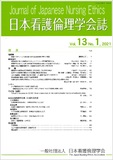Japanese
English
- 販売していません
- Abstract 文献概要
- 参考文献 Reference
1. Background
I would like to address the current state and highlight some problems faced by the aging society with low birth rate in Japan. The current aging in Japan has been progressing at a higher speed than that in many other countries. According to the statistics of the Ministry of Health, Labor and Welfare (MHLW) in 2018, the percentage of the total population aged over 65 years was 28.1%. (p.11)1 Meanwhile, the number of children has been decreasing after reaching its peak in 1995. Therefore, declining birth rate and accelerated aging society are undeniable. At present, the state of health care and welfare in Japan has become a serious problem.
Based on this background, MHLW has established a community-based integrated care system since 2014 in Japan. Briefly, this system is a policy wherein medical care converts hospital facilities into a community and integrates it with welfare. However, the Japanese population is aging rapidly, and considering its rate of aging, this system cannot cope up with the current state of health care and welfare. Hence, this proposal aims to discuss the insufficiency of nursing care in the future and the important matters in nursing education with respect to this social change throughout our study results.
1. Background
I would like to address the current state and highlight some problems faced by the aging society with low birth rate in Japan. The current aging in Japan has been progressing at a higher speed than that in many other countries. According to the statistics of the Ministry of Health, Labor and Welfare (MHLW) in 2018, the percentage of the total population aged over 65 years was 28.1%. (p.11)1 Meanwhile, the number of children has been decreasing after reaching its peak in 1995. Therefore, declining birth rate and accelerated aging society are undeniable. At present, the state of health care and welfare in Japan has become a serious problem.
Based on this background, MHLW has established a community-based integrated care system since 2014 in Japan. Briefly, this system is a policy wherein medical care converts hospital facilities into a community and integrates it with welfare. However, the Japanese population is aging rapidly, and considering its rate of aging, this system cannot cope up with the current state of health care and welfare. Hence, this proposal aims to discuss the insufficiency of nursing care in the future and the important matters in nursing education with respect to this social change throughout our study results.
Copyright © 2021, The Japan Nursing Ethics Associatin. All rights reserved.


